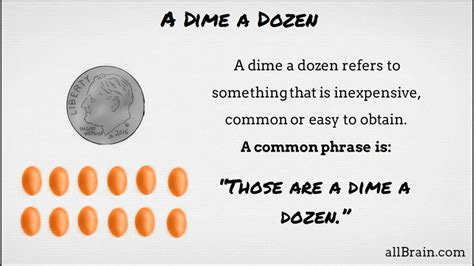A Crash Course to Achieve Fame and Success
Authors, artists, and politicians must follow specific rules that reveals a lot about their followers
Do you want to become famous?
Or rich and famous?
The question is not wholly fictitious
Ever since I’ve been writing, which amounts to nearly 60 years, I’ve always wondered what turns something into a best-seller. These days, seeing popular authors who are full of lies becoming favorites makes me ask the question:
What makes a source popular?
No free lunch: the need for an authoritative platform
If you still believe that nobodies can break out of nothing for no other reason than being good at something, you might as well believe in Santa and the Tooth Fairy, too. In real life, there is no free lunch.
As soon as a source is respected by the crowds, people tend to lose their sense of caution, because they assume that things are popular for good reasons. The last 30-35 years of popular music with its unimaginative tunes demonstrates the quality of endeavors that resulted in fame, and only few notice that suppressing alternatives contributes to the results. My old friend’s saying applies in vain: “A hundred trillion flies cannot be wrong; let’s eat crap!” Somehow, folks automatically assume that fame or success are well-deserved.
A famously-successful or an already-popular source always has a better chance to receive undeserved rewards than new wannabes. Newbies without connections stand a chance only if the producer or the publisher has nothing better to do and can make a killing using them.
People rarely observe that you can also become a successful source, because you are a member of a prevalent tribe that is automatically promoted. Many successful authors and artists thrive on stolen intellectual property by plagiarizing or by using hapless ghost writers who write for pennies on the dollar, but are still presenting novel ideas, because writing a country song pays better and provides more comfort than shoveling manure. The unimaginative settle for cashing in on their popularity until their fame wears out, and they disappear in the darkness that belched them up.
Consequently, there are only a few authors, who deserve their fame. Their secret is that they are discovered by representatives of a major and influential interest group that decides to promote them and, of course, takes most of their revenue away as promoter’s fees or mundane kickbacks. Rumor has it, that happened to the Beatles, but such stories abound, anyway. The same applies to bestsellers, unless the authors are already members of a prominent group. On rare occasions, somebody can become slowly popular and deserve it, but when they exceed a certain threshold, they either get recruited to the money-making lot or are eliminated as outsider competitors. In politics, public figures usually come from “reputable” families (e.g. the Clintons). If necessary, they are groomed for a purpose, even if they are already members (Turdeau and Macron are good examples). Kidnapped children hardly ever resurface, and their fate is predictable most of the time:
https://rayhorvaththesource.substack.com/p/where-are-the-girls
Allegedly, some abducted children are brought up to become faithful servants of the system, and some of them are selected to become famous performers, authors, “scientists,” or “elected” politicians:
https://rayhorvaththesource.substack.com/p/where-are-the-girls-vol-2-how-to
NPR usually broadcasts old pieces of classical music that is not protected by intellectual property rights. Good authors whose writing hasn’t been copyrighted or those who passed away without an heir can also become famous, because they make money for the publisher. On the other hand, the same works for crooks, liars, and ideological contortionists, too (e.g. on YouTube).
Still, every culture rewards sources that support its prevalent ideology that maintains its social structure. The ideology can be a philosophy or a religion:
https://rayhorvaththesource.substack.com/p/so-how-about-religionphilosophy
Pursuing cognitive security can entrap the careless
Something simple wrapped into an appealing package works on the simple-minded, on the intellectual slob, and on those who can’t stand uncertainty. Sometimes it’s as easy as an election slogan, “Change,” but it can get a bit more sophisticated, as in the case of the pseudo-intellectual term of “mass formation”:
https://rayhorvaththesource.substack.com/p/a-mass-formation-of-morons-using
Tragicomically, human knowledge is always tentative and incomplete1, so a certain level of uncertainty is always inevitable. The resulting fear and discomfort can motivate the determined and the amoral2 to become over-ambitious and cruel to others, but the average guy is only superficial, complacent, and proud of their intellectual abilities. They remain unaware that those abilities tend to equal that of a goldfish, with an eight-second attention span, which has been the rule in the US since about 2004. An element of pride is necessary for living behind eyes shut, and successful presenters adroitly employ the psychology.
The successful manipulator makes you feel you are better than others
The need for belonging to a group comes from human nature.
The most powerful mode of manipulation relies on creating a “we” based on existential needs:
https://rayhorvaththesource.substack.com/p/the-most-powerful-mode-of-manipulation
The resulting fake “community” exhibits surprising levels of resilience to perceiving facts and assessing them realistically.
Being “smart” (in the time of “covid,” “red-pilled”?) and belonging to people who are just as unique as you are, can make you feel you belong to a superior group, and sometimes for good reasons, but should that be your defining charactertistic? As the total is more than the total of its parts (it materializes at a higher level of complexity), a single genuine part of the fictitious whole, you, are also always more than the total.
The typical American “conformist psychopath” grows up on being told “you can do it it,” when they obviously cannot, but sooner or later, might become convinced that they can. When they get a new tattoo or a piercing in order to be “different” and “express their personality,” they just join the trend of becoming like their peers, a dime a dozen.
All of a sudden, “Diversity is our strength” becomes possible after the meaning of “we” is properly identified…
The significance of euphoria
Good manipulators can rally their audience into a frenzy and create a mob that is ready to kill for its leader(s), its program, and/or in order to maintain its imaginary identity that fills the gap of wanting to belong for the followers; it works, because the feeling is real. Giving up personal responsibility by following a leader, a movement, or by joining a group with an agenda can generate an overwhelmingly euphoric experience. The resulting relief is an unimaginably good feeling; the euphoria can last even for months, but it vanishes sooner or later, because it has no realistic basis. My encounter with such a euphoria at the age of 16, lasted only a few minutes after watching Bob Fosse’s Cabaret, but I’ve met with others who were not as fortunate:
https://rayhorvaththesource.substack.com/p/life-is-not-a-cabaret
The method is often used for defining a religious group or an assembly of some otherwise-coherent group of people. As a rule, it’s accompanied by brainwashing, de-personalization (the only identity trait allowed is the cult member’s), isolation from others than group members, and/or requirements of excessive financial or temporal contributions. Any or a combination of these can ensure that the followers stay in the flock, but sometimes something as simple as a membership fee can suffice. In all these instances, it is the follower who shuts down the escape route without noticing.
Feeling empowered: the importance of personal dignity
How many times have you heard: “you are stronger than you think” or “do not comply” in the last three years? These slogans were successful to generate followers for artists, authors, and politicians, irrespective of the value of the actual products. The targets are usually the vulnerable who don’t know any better:
https://rayhorvaththesource.substack.com/p/scams-targeting-the-desperate
The prototypes of the method are the “do-it-yourself” books and presentations, but such efforts can easily develop into esoteric practices that further confirm the participant’s delusional exceptionality. Anything that claims to possess the complete “Truth” that it will share only with a select few (who, in return, give up their independence) or promises exceptional personal powers falls under suspicion.
Everyone is special, but not in the way of Harry Potter
People who lack a healthy amount of self-respect, are led to believe it’s “humility” that places them behind others and it’s their choice. It’s their choice alright, but that, however, doesn’t enable them to acquire self-respect, because they are falling behind. As a result, they might expect others to be “humble,” too, makes them determined to eliminate or at least defame any sign of promising talent or goodness; they want to drag everyone else down to their levels. Taking responsibility includes that you must accept responsibility for your strengths and act upon them, while discover and support real talent, instead of maligning or extinguishing it in the name of “humility.”
On the other side of the coin, everyone is special, but that doesn’t make them better than others.
So, instead of wasting time on feeling better than a few miserable or envied “others,” it’s better to develop one’s existing talents and put them to use. The worst criminals use, oppress, and eliminate others, but always claim to serve “mankind,” “society,” “humanity,” or some other abstraction that exists only in cognitive models or, to put it simply, in one’s imagination.
Eventually, the bill comes in for everyone. I hope, your investment will be worth the return.
My “cognitive epistemology” is simple, but realistic:
https://rayhorvaththesource.substack.com/p/dissecting-the-myth-of-science
These are the two prerequisites for another unnecessary, but fancy category, “the psychopath.” Using it can make the speaker feel superior and lose sight of the dangers of such categorization:
https://rayhorvaththesource.substack.com/p/looking-for-psychopaths







So bingo I am speechless! You do not succeed in this system unless You pay homage to the psychopaths in control.
Oh well, I never wanted to be famous anyway.